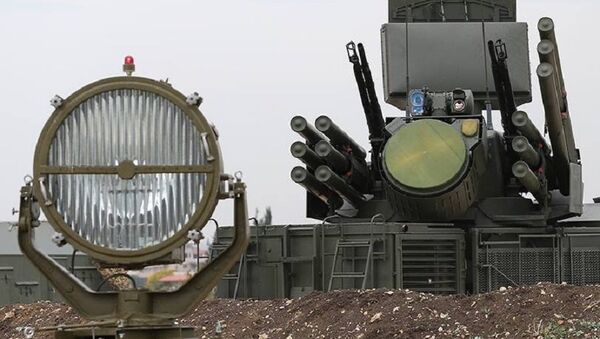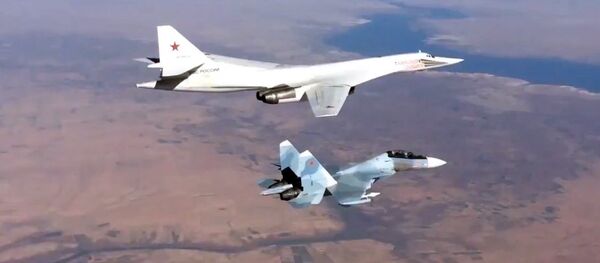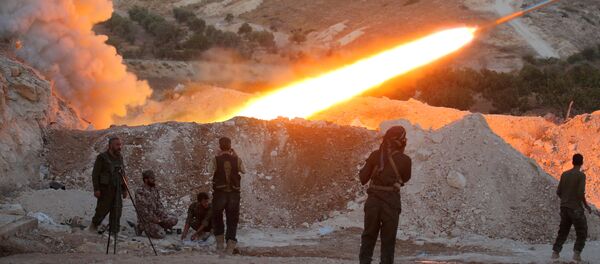The author explains that taking into account the covert nature of the redeployments of Russia's military personnel, weaponry and military hardware, command facilities and supplies at long distances, the campaign can rightfully be considered a unique operation.
Since the arrival of the limited contingent of Soviet forces in Afghanistan at the end of 1979, Russia has not been involved in any operations of this scale.
"The covert nature and swiftness of the redeployments of Russia's troops have ensured the unexpectedness and efficiency of its airstrikes on the positions of the terrorists," the author says, adding that through their operation in Syria Russia's Armed Forces have changed the political situation in the whole of the Middle East.
'Long Arm Strategy'
According to Russia's Deputy Defense Minister General of the Army Dmitry Bulgakov, the delay-free system of cargo deliveries to Russia's Aerospace Forces in Syria caught the attention of NATO experts who dubbed it the "Syrian Express."
Earlier in July, the Russian general said that in 2015 alone, Russia delivered more than 200 thousand tons of cargo to its military base in Syria.
Russia's air base in Hmeymim had all the infrastructure it required, including munition depots and fuel and lubricants stores.
The expert control over such a hybrid contingent both on the battleground and from the Moscow–based National Defense Control Center (NDCC) also contributed to the uniqueness of the operation.
Another advantage is its smooth cooperation with the Syrian Armed Forces, largely due to the expertise of Russian military advisors, whose role in the operation is yet to be appraised. As well as the role of Russia's military science, as such an operation can't be planned without a solid scientific foundation.
Efficient planning and implementation of these plans at the strategic, operational and tactic levels have been supported by highly-trained expert military personnel who were able to effectively apply the advanced weaponry and armaments.
According to General Petr Deinekin, the former Chief Commander of the Russian Air Force (1991-1998), during the operation of its Aerospace Forces in Syria, Russia has developed a reliable control system and methods of cooperation between Russian and Syrian Armed Forces at the strategic, operational and tactical levels.
Russian military actions in Syria, he said, have a "strategical importance."
"The use of high-precision cruise missiles of naval and aerial deployment has demonstrated Russia's ability and readiness to promptly and rapidly resort to the advanced first-strike weapon," the general said.
"The Syrian war has been showing the whole world throughout this year that the most important demonstration of the military might of any state is its aerial supremacy. Russia's Aerospace Forces has showcased themselves as a mighty long-range tool for solution of any strategic tasks," Deinekin stated.






